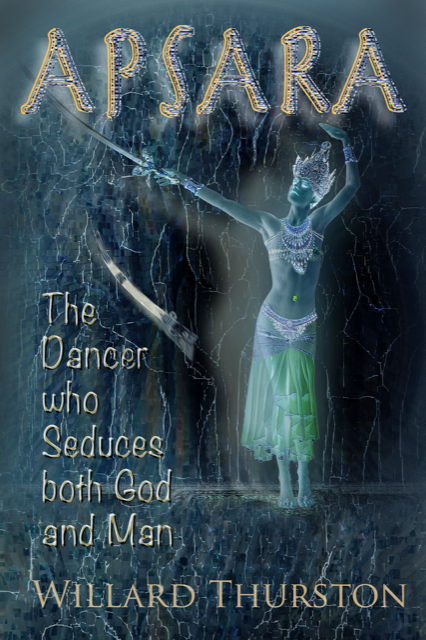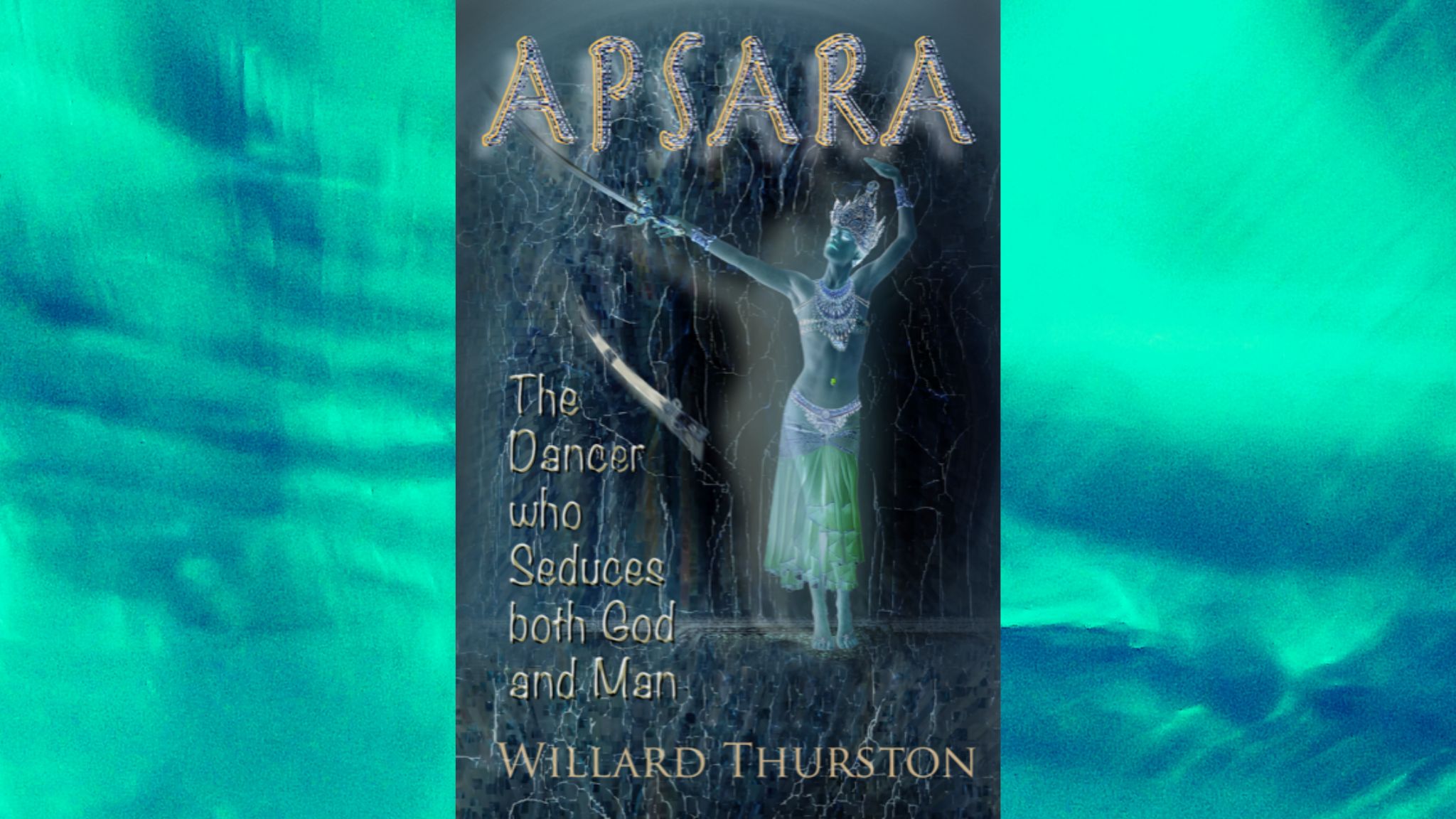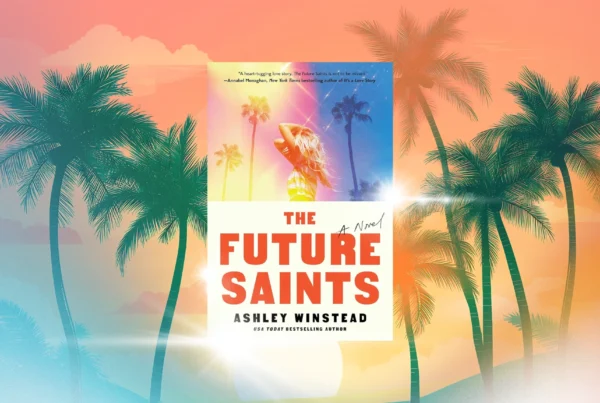Apsara by Willard Thurston
These are just a few of the colorful characters and mirror plots populating Willard Thurston’s illustrated novel, Apsara.
Like many of Thurston’s novels, Apsara defies ready summation. It’s a sprawling, interconnected web of hidden agendas, deceit, entrapment, alliances and sabotage, all amid a bevy of complex schemes that shift constantly as new information comes to light and unforeseen events arise. There are numerous subplots, all tied together by interconnected characters, some of whom we’ve met in Thurston’s previous novels. At this point, it’s safe to say that in fact there is a Thurstonverse – an imaginary world that offers the reader a prismatic experience through the eyes of its many denizens.
Twins Separated at Birth Involved in Dangerous Exploits
In Apsara, we meet Catherine Whyte, an investigative reporter who runs afoul of jailed Russian mafia boss “Bossy” when she publishes an expose of his dealings in tainted baby formula. Unbeknownst to her, she has a twin – an exotic dancer named Zoya – from whom she was separated shortly after birth. This twin, in a mirror plot, has run afoul of another dangerous man, a terrorist named Ammon who suffered the ignominy of a blinded eye at the hands of Zoya after attacking her backstage for her “blasphemous” rendition of an Arabic sword dance.
Both Catherine and Zoya receive worldwide press coverage for their exploits, a device that links nearly all the other characters together in that they take notice of one or both stories, setting varying threads of plot careening outward. Not the least of these is the fact that the two women are surprised to learn of a doppelganger. Little do they know how useful that will be in the coming months. Or what secret lies beneath this coincidence.
After her (albeit understandable) expulsion from Russia, Catherine settles into a new assignment investigating the West Coast art world, which is rife with the influence of Bossy’s younger brother “Kissy.” Here, she becomes embroiled in modeling for a commissioned illustration project at the behest of an old flame and talented artist. The project? A book based on a Greek myth called Musing the Maenad. (A book, as it so happens, that Thurston himself has already written and illustrated in the real world!)
Darker Forces and Genetic Manipulation
But there are forces at work to undermine Catherine’s credibility as a journalist. Bossy pulls the strings on an ever-evolving plot to entrap her in a series of voyeuristic “indiscretions,” including a sexual relationship with another woman. This leads Catherine down a strange path that uncovers the existence of an egg-harvesting scheme at a local spa – one that screens its egg donors in specious and invasive ways (including “examination” by a sex-pleasuring robot, of all things). What’s more, access to the most exemplary donors and their “donations” is auctioned off to the highest bidder.
As it turns out, this scheme is also linked to a eugenics researcher by the name of Felix Muerner – a recurring Thurston character and founder of Bern Clinic, an epicenter for experimental body modification, reconstructive or otherwise. Catherine doesn’t know it yet, but Dr. Muerner has already played a significant role in her life, not to mention in the life of her as-yet secret twin. The story only gets stranger from there as we enter the world of cutting-edge genetic manipulation.
Yet all of the above just scratches the surface of this twisting and turning tale written in Thurston’s inimitably erudite, satiric, freewheeling fashion. Throughout the novel, we find recurring themes: the erosion of sexual mores in entertainment media, the subtle waging of a culture war, and the clash of radical Islam and (radical and not-so-radical) feminism. It’s a world where Russian mafiosos are variously in bed and at odds with jihadists; where art is a weapon; identity and appearance are ever malleable; beauty vexes us with pesky philosophical questions, and the cunning always come out on top in the end.
This is a pre-publication review; meanwhile, Apsara may be obtained by contacting the author, Willard Thurston.
About Willard Thurston:
Willard Thurston lives in British Columbia. One of the Sixties “floaters” … eventually a photographer and printer (retail advertising), illustrator and writer. He holds a degree in English and Early European History from the University of British Columbia.





